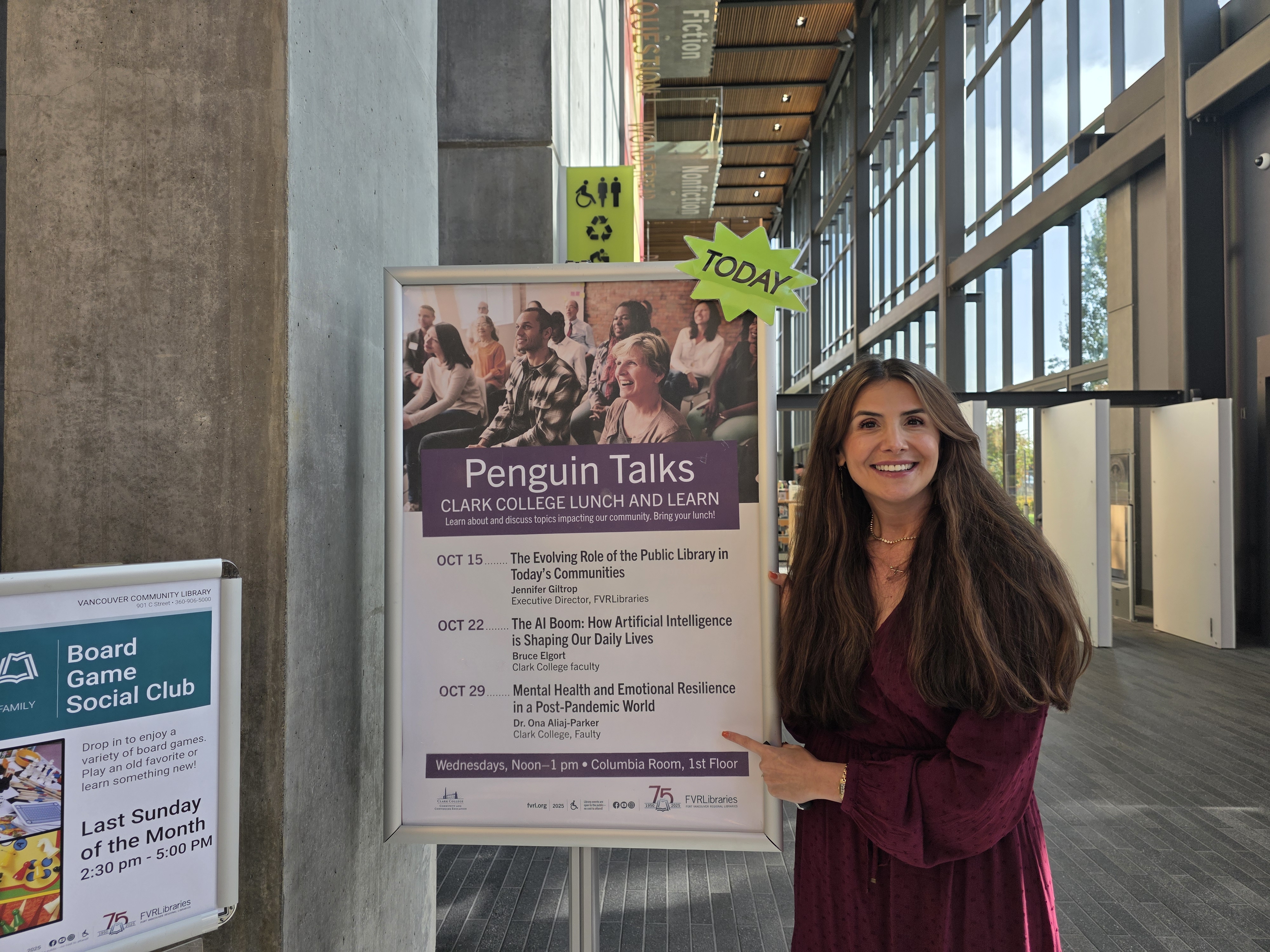Mental Health in a Post-Pandemic World
Importance of building emotional resilience and caring for your mental health

More than five years since the start of the COVID-19 pandemic, statistics show that the mental health of most Americans has yet to rebound to pre-pandemic levels. That lingering struggle set the stage for Dr. Ona Aliaj-Parker's Penguin Talk, “Mental Health and Emotional Resilience in a Post-Pandemic World,” held Oct. 29 at the Vancouver Community Library.
Ona (pictured above) opened with a sobering reality—during the pandemic, the U.S. depression rate climbed to 25%. Today, it has dropped by just 4%. The group most affected? Young adults between 18 and 25 years old. One major factor driving these numbers, she said, is loneliness—a feeling deeply magnified by years of isolation and disconnection.
Yet the session wasn’t without hope. Ona guided audience members through practical steps to maintaining mental health and building resilience. Regular exercise—whether yoga, playing a sport, dancing, or simply moving your body—can boost mood and self-care. So can consistent social interaction, mindfulness, and getting enough sleep.
“Being mindful is just being present with whatever you’re doing at that moment,” she said.
She also emphasized the importance of seeking support. Whether through individual or group therapy, cognitive behavior therapy, or peer and community support groups, connecting with others can make a measurable difference.
“Supports like these enhance our ability to manage our mental health and take proactive steps to maintain our well-being by engaging with the right resource,” Ona said.
Establishing daily routines can also help reduce feelings of overwhelm and isolation. Limiting news or social media intake, focusing on what can be controlled, and completing simple tasks like making your bed can help create a sense of stability and purpose.
Practicing gratitude is another strategy. One shared her idea of “cookies for your soul”: writing down things you’re grateful for on slips of paper, placing them in a jar, and reading one on difficult days as a reminder of the good in your life.
Throughout her presentation, Ona explained that stress can manifest in physical, emotional, cognitive, and behavioral ways. While some stressors can be avoided, others—like the loss of a loved one—are part of life. That’s why, she said, the goal should not be constant happiness, but resilience.
“When you have a goal or a purpose, that’s what gives us joy,” she said.
Understanding the difference between stress and its causes is key. Stressors are the triggers; stress is the reaction. Identifying what sparks stress and developing strategies to respond differently can help prevent burnout.
“At the end of the day, you’re your own magic wand,” Ona concluded. “Everything begins with you.”
About Penguin Talks: Clark College Lunch & Learn
Hosted by Clark Community and Continuing Education, this free lecture series invites the public and college community to explore critical topics and engage with inspiring local experts. Registration is free, and talks will resume next term.
Photo: Clark College/Malena Goerl
Story by Malena Goerl, Staff Writer, Communications & Marketing
